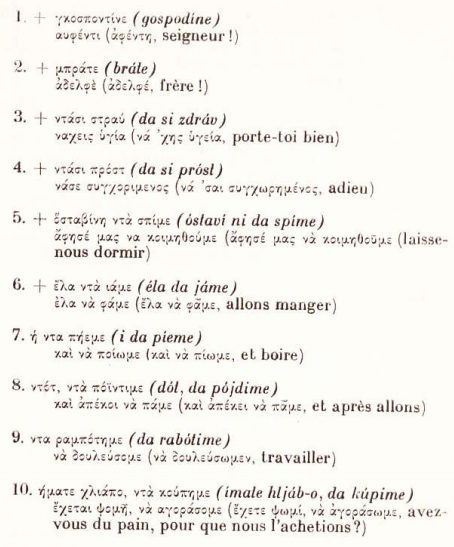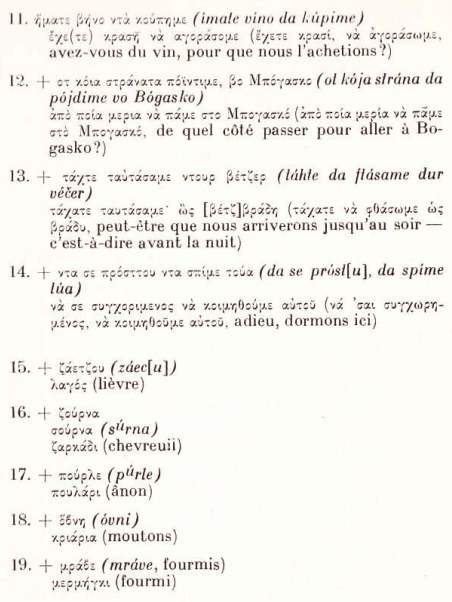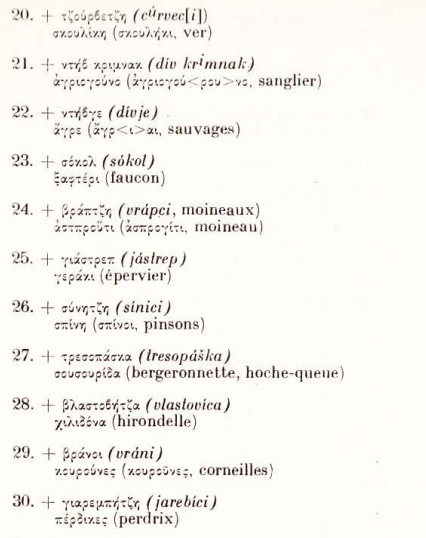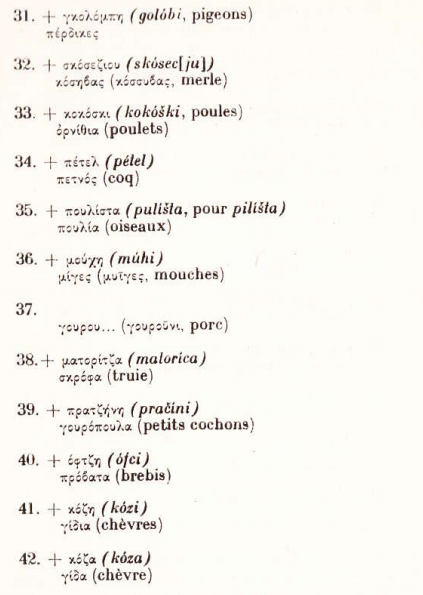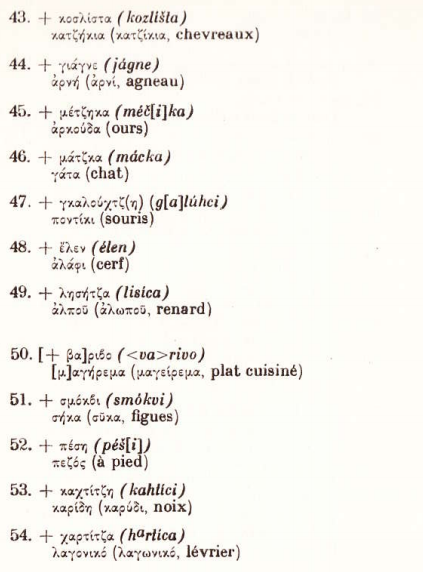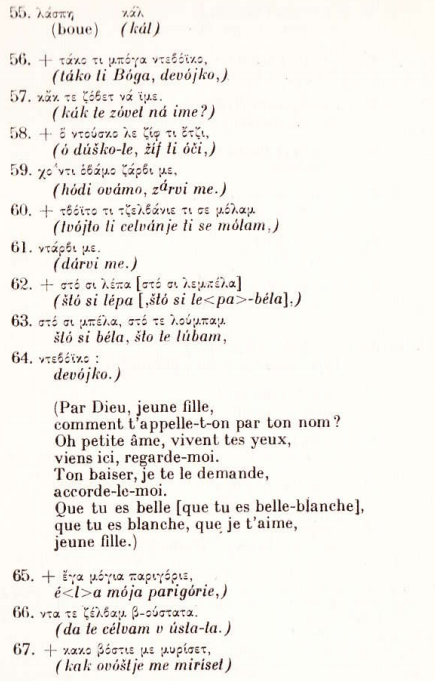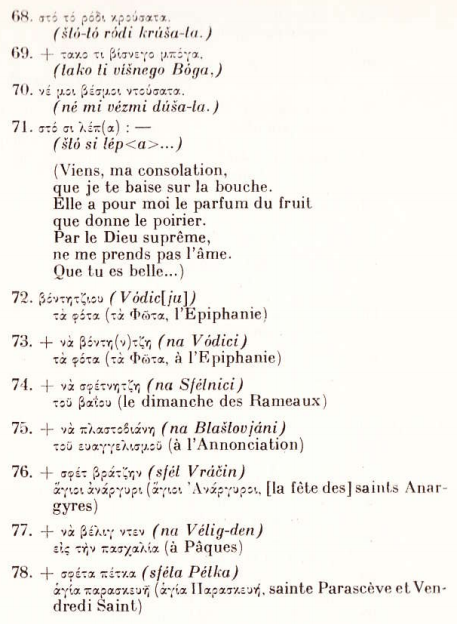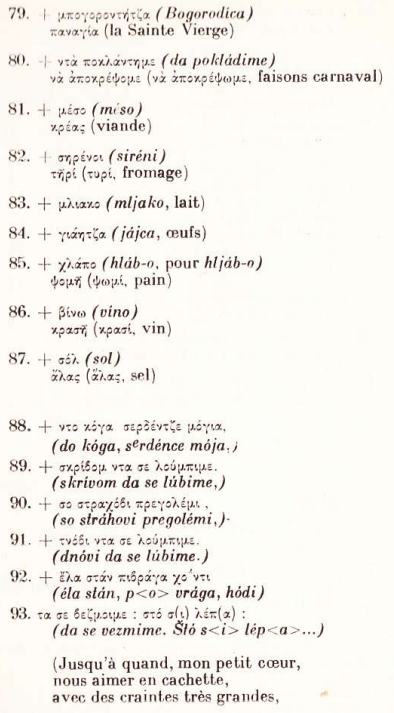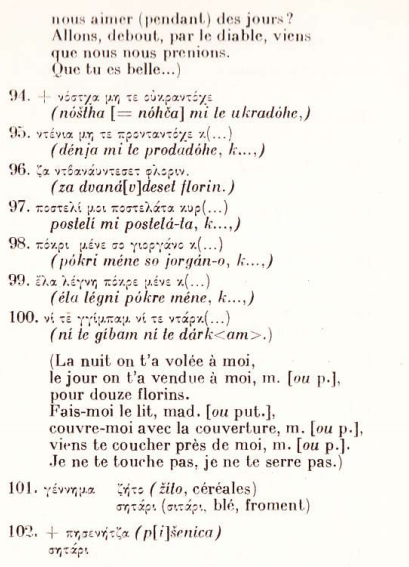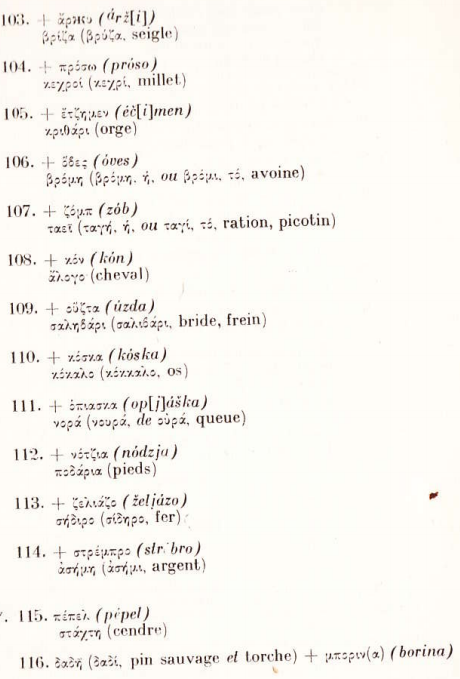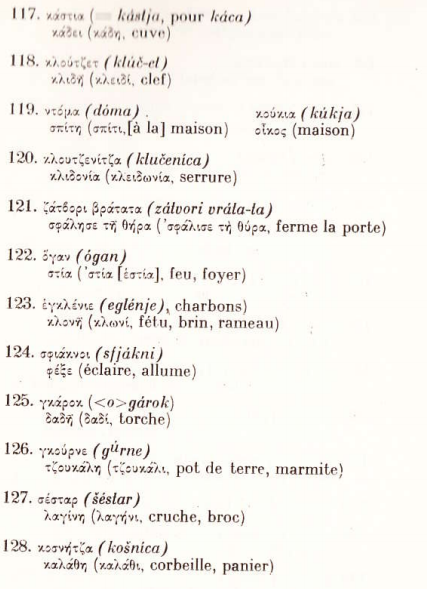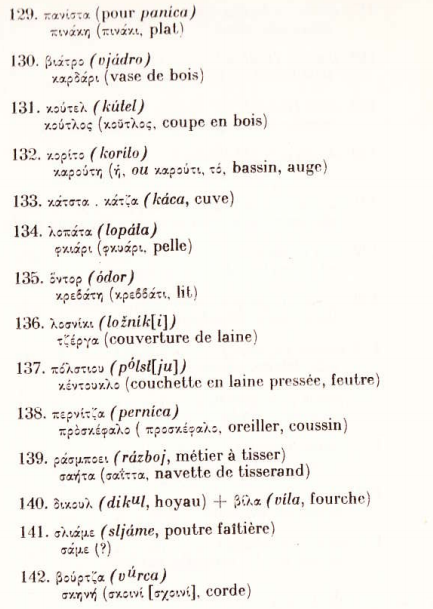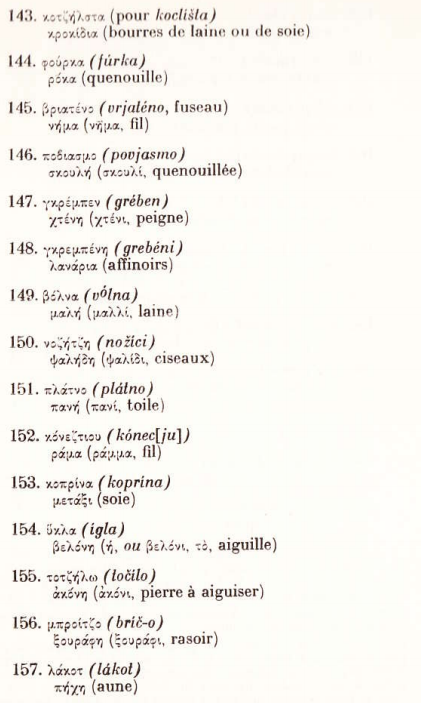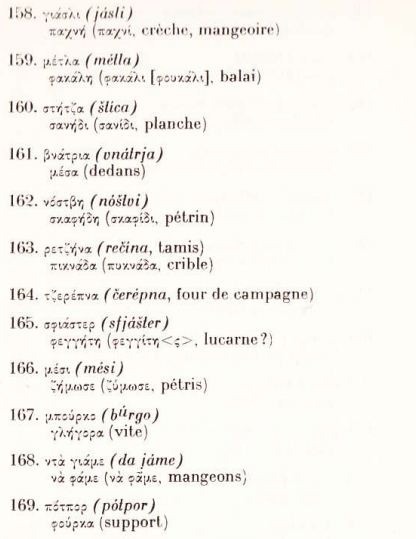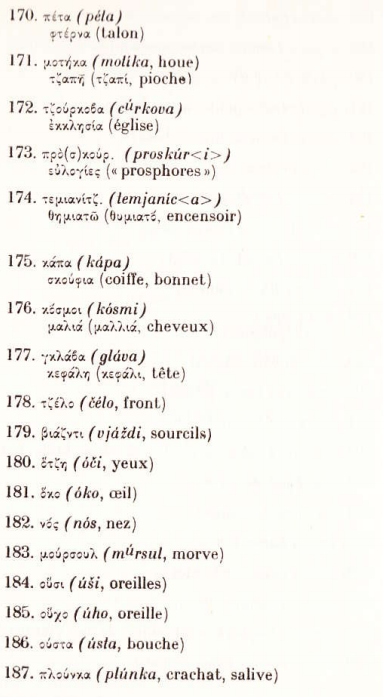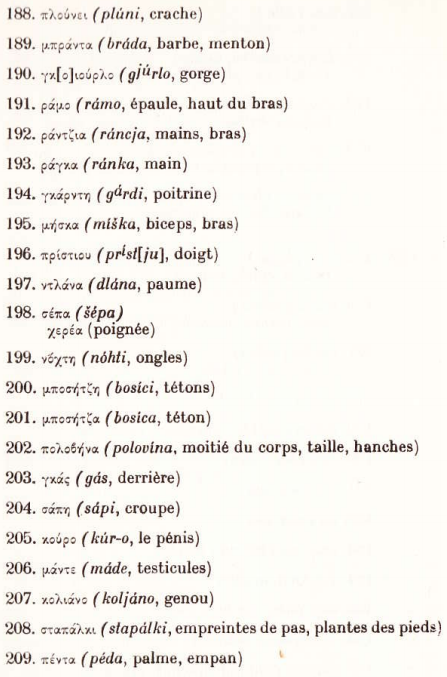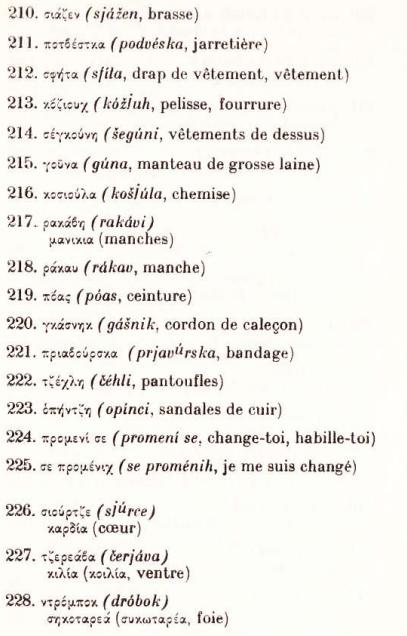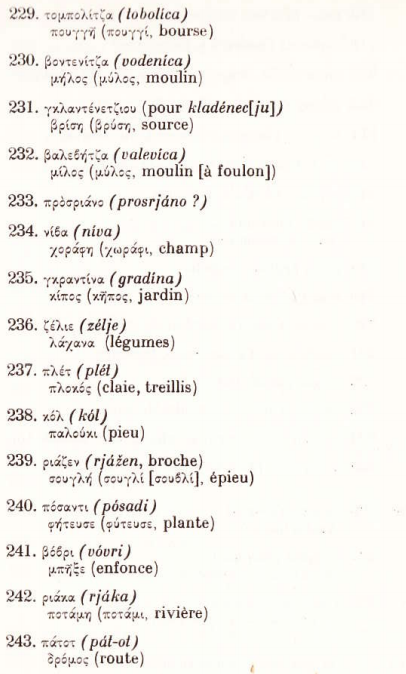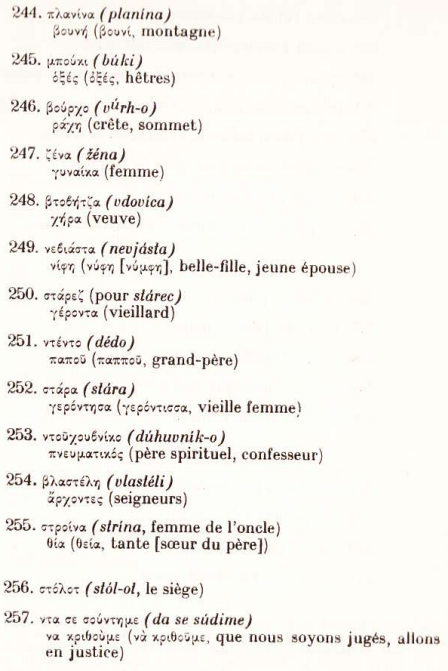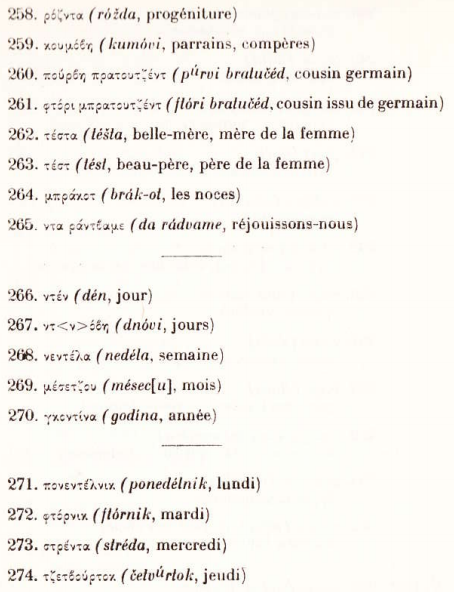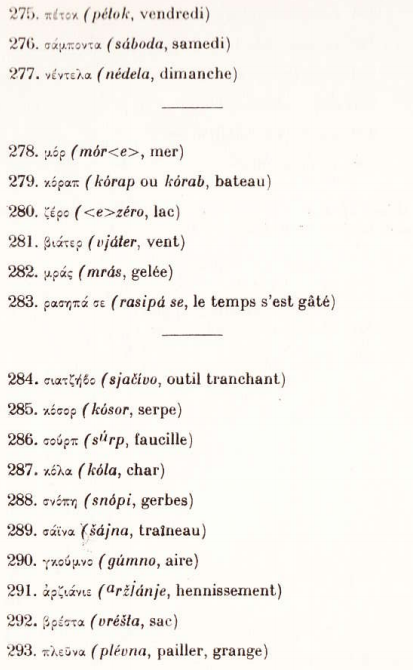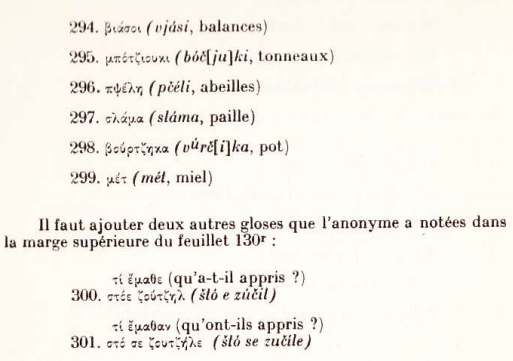Macedonian Lexicon - 16th Century
Record of the Macedonian language
The texts presented for analysis in this article were produced by the Institut Detudes Slave, De L’universite De Paris in 1958, and are a study based on words and phrases from Macedonia in the 16th century. It is one of the earliest manuscripts written in a purely Macedonian vernacular tongue, and its content was collected from the village of Bogatsko, which is found in the region of Kostur in the south-west of Macedonia. The author remains anonymous and the only likely conclusion that can be drawn is that he may have spoken the Macedonian language natively or acquired it as an additional tongue due to living in close proximity to people who spoke it. The texts were written using the Greek alphabet, which was not uncommon in the Balkans during the Ottoman period, as similar examples with the Albanian and Vlach languages have demonstrated. Furthermore, the ‘Bulgarian’ label that was at times attached to the Macedonian language is employed in the texts, remnant terminology that had remained in use largely due to Macedonia’s former location within the Bulgarian Empire. Despite this, however, there can be no doubt that the dialect (and indeed location) of Bogatsko belongs to Macedonia, and not Bulgaria.
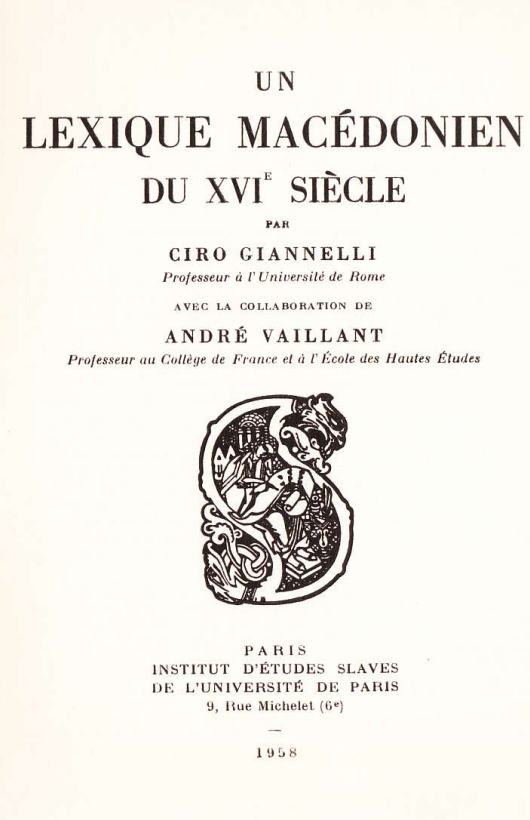
Macedonia during the Middle Ages
By the end of the 14th century, Macedonia had already been under Ottoman rule for a few decades, losing its status as a vassal state under the leadership of King Marko in 1395. As the greater region was finally deprived of any sense of liberty after the death of George Kastriot - Skenderbeg in 1444, forms of local state structure in Macedonia ceased to exist. This left the responsibility of retaining the culture, language and identity of the people with the religious institutions that were active in Macedonia at that time. The traditional influence of the Patriarchate at Constantinople that was prevalent during the Roman period had resurfaced again in the Ottoman Empire, as the latter looked to use the former to consolidate a single Roman Millet of Orthodox Christians within their domains. However, institutions such as the Archbishopric of Ohrid and even more significantly the hundreds of churches in Macedonia, played a pivotal role in ensuring the local culture, language and identity of the people would survive throughout the centuries of hardships.
Despite the absence of written works relating to statehood, material of a religious and educational character continued to flourish, and Church Slavonic, an essentially Macedonian tongue that was initially developed for such purposes in the 9th century, remained the literary language of the Macedonian people. However, the vernacular tongue of the Macedonians had co-existed with Church Slavonic and matured over the years, demonstrating a remarkable resilience and stability, which earned its introduced as the language of church services in Macedonia. The Macedonians were faced with foreign interference in both their lands and institutions, but their language had been largely solidified, evidenced in the fact that spoken Macedonian from the 16th century has a far greater affinity to spoken Macedonian dialects of today than it does to Church Slavonic. For well over half of a millenium, the Macedonian language has basically remained the same.
Vocabulary and Linguistic Characteristics
The texts reveal distinctive local features that have tenaciously survived the ages, and are still present in a number of today’s spoken Macedonian dialects. This fact reveals the remarkable consistency of the Macedonian language despite the lack of state support or schooling until the 20th century. Below is a sample of words from the texts, along with linguistic characteristics peculiar to the language of the Macedonians.
Animal/Food/Anatomy Terms - Mrave (Ants); Curvec (Worm), Sokol (Falcon), Vrapci (Birds), Golobi (Pigeons), Kokoshki (Chickens), Petel (Rooster), Ofci (Sheep), Kozi (Goats), Jagne (Lamb), Mechika (Bear), Elen (Deer), Lisica (Fox), Kon (Horse), Krusha (Pear), Meso (Meat), Sireni (Cheese), Jajca (Eggs), Vino (Wine), Sol (Salt), Zhito (Grain), Koska (Bone), Gas (Buttocks), Kuro (Penis), Made (Testicles).
Unique and Loan Words - The word Galuhci (Mice) is used, which can also be said as Gluhci or Glufci, and Macedonians are the only people who use this word. The word Veligden (Easter) is used, pronounced with the ‘g’ in Macedonian only. Turkish loans are very rare, one example being Jorgano (Blanket).
Dialectal and Jat Features - The Kostur region contains dialects that have retain several archaic characteristics, such as the word Ranka (Hand) rather than the more common Macedonian variant of Raka. An interesting trend is found in the use of multiple transitions of the Jat feature that is present in various Macedonian and Slavonic dialects. For example, the text employs the word Dedo (Grandfather) and not Djado, yet Hljap (Bread) and not Lep or Leb.
Definite Articles - The typical Macedonian postfixed definite article is exhibited in words such as Krushata (The Pear) and Dushata (The Soul). It is also noted in the word Patot (The Path) for ‘the path’ , although as the case of Jorgano (The Blanket) demonstrates, the ‘t’ at the end can also be dropped, as in several of today’s Macedonian dialects.
Words and Phrases, Unchanged for Centuries.
Containing a rich glossary and in excess of 300 words and phrases, the texts demonstrate the strength of the Macedonian language through preservation. Following is a comparison of sentences between the texts and the Macedonian dialect of Bitola as spoken today.
16th cent., Kostur dialect (
Anmerkung: Kostur=Kastoria/Nordgriechenland)
21st cent., Bitola dialect
Gospodine, brate, da si zdrav, da si prost, ostavi ni da spime, ela da jame, i da pieme, dol da pojdime, da rabotime.
Gospodine, brate, da si zdrav, da si prost, ostai ne da spiame, ela da jaime, i da piame, dolu da pojdime, da rabotime.
Imate hljap-o da kupime, imate vino da kupime, ot koja strana da pojdime vo Bogasko.
Imate lep da kupime, imate vino da kupime, od koja strana da pojdime vo Bogatsko.
As can be clearly noticed, most of the vocabulary and grammar is identical.
All of the elements that would later be required to rejuvinate the Macedonian people as they were shaking off centuries of subjugation, were present during this period. The language of the people had solidified, a tradition of heraldry and symbolism had developed which incorporated the emblem of a rapant lion and historical figures from Macedonia’s past, and the churches continued preserve the local customs and serve as cultural centres for the population. The significance of all these elements together cannot be overstated, the language of medieval Macedonia is the same as the language of the Macedonians today. Unfortunately, only a small portion of the larger amount of Macedonian literature from the Middle Ages has survived, much of it being looted and destroyed by Greek-speaking officials, clerics and teachers. Nevertheless, Macedonian as a language reached its current form centuries before the creation of the Balkan states in the 19th and 20th centuries.
Short-dictionary of the Macedonian language, Kostur Dialect, 301 entries.
References:
Un Lexique Macédonien du XVie siècle. Institut d’Études Slaves del’Université de Paris. Giannelli, Ciro and André Vaillant. 1958.
Victor A. Friedman,
Vocabulary elements in early Macedonian lexicons.
Richard Frucht, Eastern Europe,
Introduction to the people, lands and culture. Page 619.
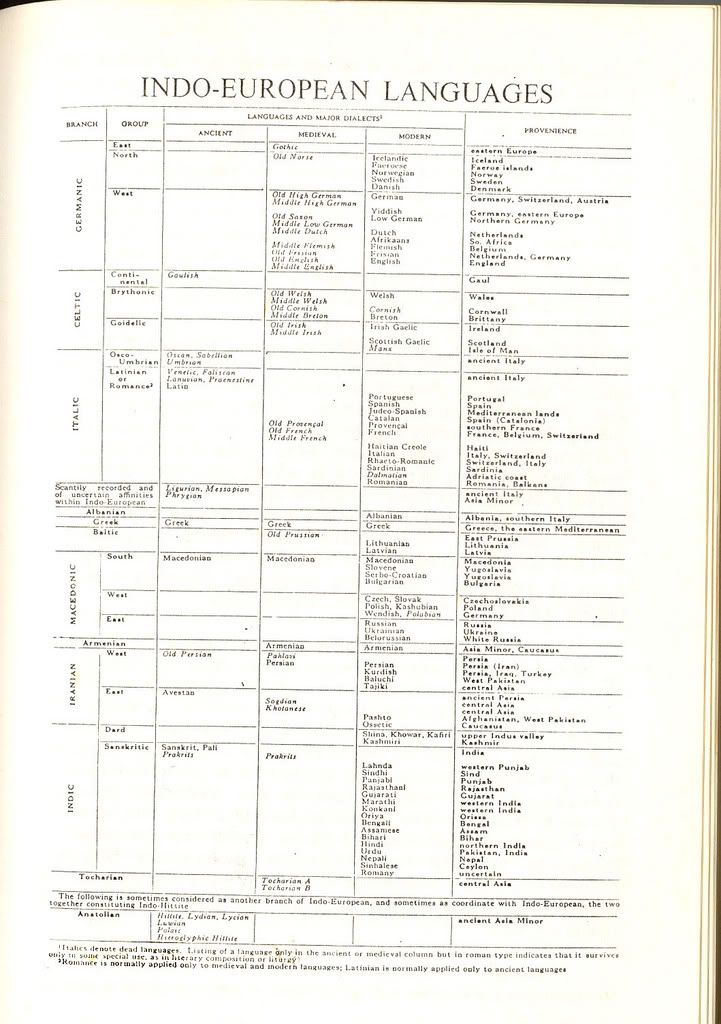

 Greek Macedonia in the late 18th or early 19th century. It contains a Greek evangeliarium (Gospel lectionary for Sunday services) and its Slavic translation,
Greek Macedonia in the late 18th or early 19th century. It contains a Greek evangeliarium (Gospel lectionary for Sunday services) and its Slavic translation, 


